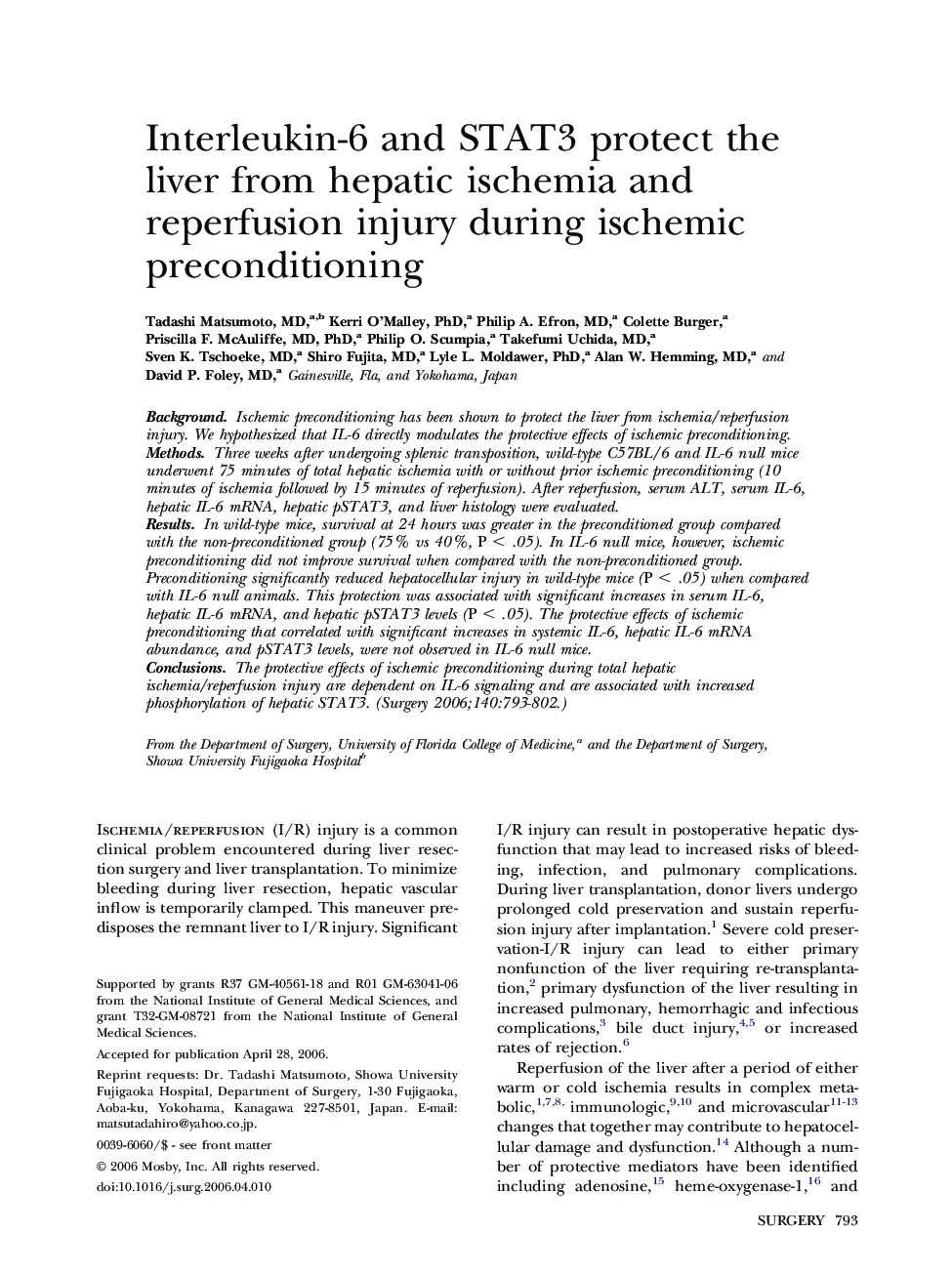| Article ID | Journal | Published Year | Pages | File Type |
|---|---|---|---|---|
| 4309893 | Surgery | 2006 | 10 Pages |
BackgroundIschemic preconditioning has been shown to protect the liver from ischemia/reperfusion injury. We hypothesized that IL-6 directly modulates the protective effects of ischemic preconditioning.MethodsThree weeks after undergoing splenic transposition, wild-type C57BL/6 and IL-6 null mice underwent 75 minutes of total hepatic ischemia with or without prior ischemic preconditioning (10 minutes of ischemia followed by 15 minutes of reperfusion). After reperfusion, serum ALT, serum IL-6, hepatic IL-6 mRNA, hepatic pSTAT3, and liver histology were evaluated.ResultsIn wild-type mice, survival at 24 hours was greater in the preconditioned group compared with the non-preconditioned group (75% vs 40%, P < .05). In IL-6 null mice, however, ischemic preconditioning did not improve survival when compared with the non-preconditioned group. Preconditioning significantly reduced hepatocellular injury in wild-type mice (P < .05) when compared with IL-6 null animals. This protection was associated with significant increases in serum IL-6, hepatic IL-6 mRNA, and hepatic pSTAT3 levels (P < .05). The protective effects of ischemic preconditioning that correlated with significant increases in systemic IL-6, hepatic IL-6 mRNA abundance, and pSTAT3 levels, were not observed in IL-6 null mice.ConclusionsThe protective effects of ischemic preconditioning during total hepatic ischemia/reperfusion injury are dependent on IL-6 signaling and are associated with increased phosphorylation of hepatic STAT3.
